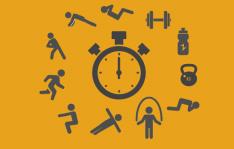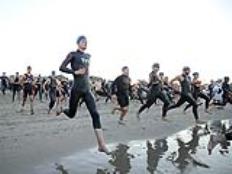Many journalists in the triathlon community think the new announcement indicates that the ITU will extend draft-legal rules to amateurs on a broader scale. But it doesn't seem practical that USAT would filter the draft-legal requirements down to local events as a condition for sanctioning, since it would be prohibitive to getting people to register. This might create a situation in which people qualify for a draft-legal race by competing in non draft-legal events. Whether that becomes a problem or not isn't clear.
How Drafting Could Change the Way You Race
What is certain is that draft-legal racing is radically different from no-draft racing. Drafting puts riders very close together, requiring them to have quick reflexes, calm nerves, and experience in reading the road and the pack. Small slips can cause big wrecks in draft packs. Furthermore, drafting on the bike means that your position exiting the swim becomes much more important to your finish in a race. Getting left too far behind in T1 can potentially kill your entire race. Likewise, a fast draft pack can hurt athletes who specialize on the bike. A fast runner who can get into a lead group will have a much easier time staying with his or her competitors if they're able to "hide" from wind resistance close behind. The stronger cyclist can't make a getaway and winds up helping their competitor into a winning position running out of T2.
More: Drafting Etiquette for Open Water Swimming
In a way, this means that draft-legal races put more emphasis on swimming and running than non-draft races. Depending on what type of athlete you want to be, you may need to change your approach to training. Conversely, depending on what type of athlete you already are, you may find yourself in better condition to compete on the national and international levels in coming years.
Again, these changes won't start taking effect for more than a year, and even then it will be at one world championship. The ITU has been ambiguous about how far it will take this initiative, so big changes in the United States are at least a few years out. No one needs to make radical changes to their training or racing schedules just yet. But it's something to keep in mind when watching developments at the ITU, and possibly when looking for events to sign up for in the future.
More: Drafting Rules for Long-Course Triathlons
 Search for your next triathlon.
Search for your next triathlon.
- 2
- of
- 2
About the Author










Discuss This Article